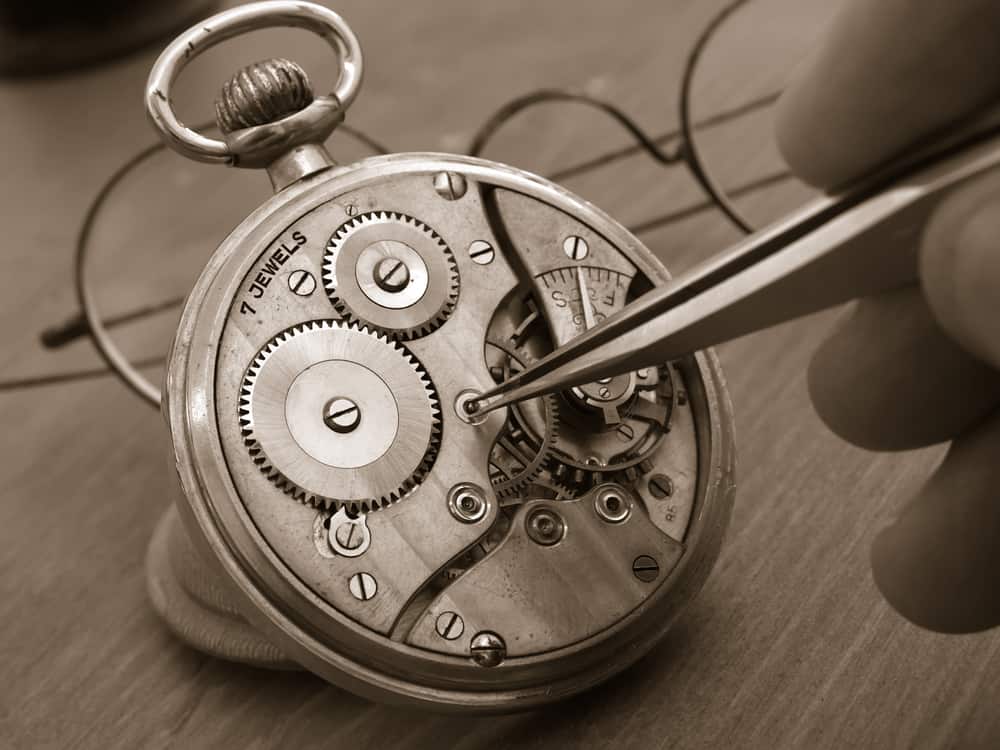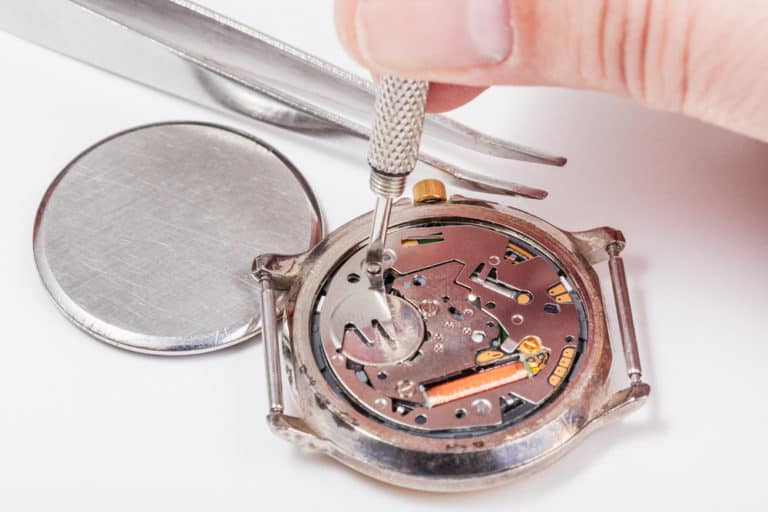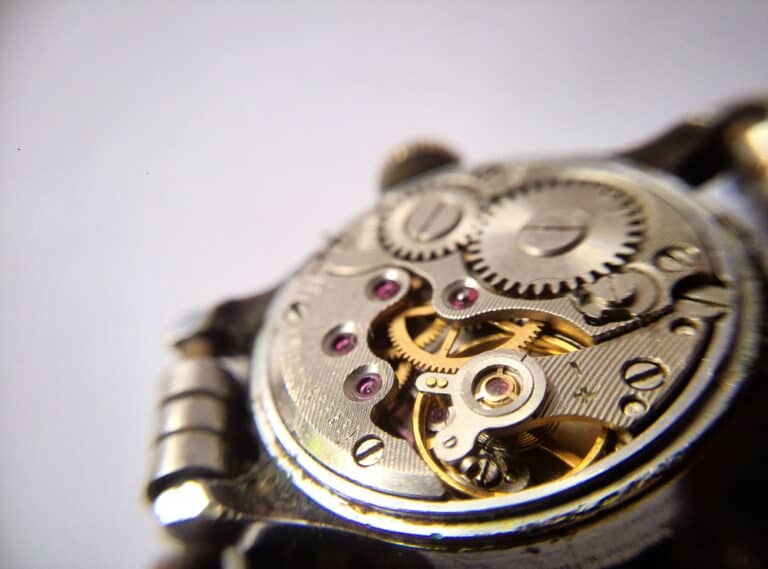Horology has become a niche industry, but it can be highly lucrative and fascinating. Horologists study the measurement of time and specialize in crafting timepieces. If you are interested in horology, you may wonder how much time it requires to become a horologist.
It can take up to five years to gain all of the certifications to become a certified horologist, including watchmaking school. Horologists say that after the five years of study, it requires an additional five years of experience to become a true horologist and work in the industry.
Several routes lead to becoming a horologist, but not all of them are equal. It can be a significant challenge to become a horologist and practice watchmaking, but nothing else will satisfy you if you enjoy it. Let’s explore the ins and outs of becoming a horologist, what it requires, and how you go about doing it.
How Long Does It Take To Be A Horologist?
Becoming a horologist requires a lot of patience, skill, practice, and time, but if you want to pursue this career path, how long does it take to become a professional horologist?
The amount of time required to become a horologist varies depending on your access to learning materials and courses, where you are in the world, how hard you work, and whether or not you are afforded the opportunity to be a horology apprentice.
The process of becoming a horologist can entail formal education and study in the field, but it can also be as simple as getting an apprenticeship with a watchmaker and learning the skill by doing it.
However, learning horology and becoming a horologist is significantly quicker if you enroll in formal horology studies.
Taking this route can take two to four years of study to graduate from the various courses required and then another several years to become a skilled horologist ready to work in the industry independently.
Taking an apprenticeship without formal study in horology can take a lifetime to become a master, but it is the only route of study that some people have.
It can require several years to become a certified horologist, but every master will tell you that horology is a lifelong practice and every horologist is constantly refining their skills, learning new techniques, and never stops practicing the art.
Horology is a life-long endeavor that should only be undertaken by those who have a true passion for the craft.
How Do You Become A Horologist?
We have established that it can take several years to become a horologist, but if you are serious about the craft, how do you go about starting the journey to becoming a watchmaker and certified horologist?
The best way to become a horologist is to begin by enrolling in watchmaking school. This is a course that usually takes less than two years to complete and can sometimes be completed in only one year.
This course teaches the student the fundamentals of horology, watchmaking, the history of studying the measurement of time and provides the student with experience fixing and making watches.
Once completing watchmaking school, the following steps are to either continue your studies and complete horology certifications in the country where you live or take on a watchmaking apprenticeship.
Most countries or regions have their own horology certifications, qualifications, and courses to complete and acquire.
The more courses you complete in horology, the more you will learn, and the better your skill will become. This will afford you much better opportunities in the industry, and the easier it will be for you to make progress.
Becoming an apprentice is a good path as well, as it provides a significantly more practical experience as a watchmaker, but it can make the process of becoming a certified horologist take more time.
Most horology students complete all the courses they can and then take on an apprenticeship to gain more experience and hands-on skills.
Seasoned horologists will tell you that it takes around five years to complete all of the possible courses in horology and watchmaking and then another five to ten years to learn all of the necessary skills and techniques to function in the industry independently.
These are the two main ways to become a horologist, but it is usually recommended that a horology student take the time to complete their studies before looking for practical work in the industry.
Do You Require A Degree To Become A Horologist?
A common question among those who are interested in learning horology is whether or not it is required to obtain a degree to become a horologist.
You can complete several certifications on the journey to becoming a horologist, but the truth is that this vocation does not require a degree.
It is better to do as much formal study and take as much education in the industry as possible, but it is also possible to become a horologist by learning the skill from a practicing horologist or watchmaker.
Certifications make it easier to find work or to gain respect in the industry, but horology can be taught and learned by doing, not only by studying.
There are no formal degrees in horology, but every country or region has its own horology standards that a horologist must adhere to become a certified watchmaker or horologist.
Some companies require potential watchmakers to have some form of certification to even consider hiring them. The most prevalent watchmaking companies will only hire watchmakers with good education and plenty of experience.
Among the best ways to gain experience in horology is to study as much as possible, which means that this is a better route into the occupation, but it is not a requirement to become a horologist.
Do Horologists Only Make Watches?
Horology is a broader field than most people realize, but most people interested in the vocation find themselves wondering if there is more scope to being a horologist in modern times than being a watchmaker.
Horology is more than watchmaking. A significant aspect of modern horology is making watches because this is where the majority of the industry functions, but horology itself is, in fact, the study of the measurement of time, as well as the practice of studying and crafting instruments for measuring time.
This means that studying horology will teach you much more than watchmaking. You will learn about the history of the study of time, how various time measurement instruments were invented and developed, how horology influences society, and the history of the craft and science of horology in different regions of the world.
Modern horologists push the boundaries of what is possible in watchmaking, but they also make wonderful clocks and other timepieces, and there is plenty of scope for teaching horology to those who are interested, as well as furthering the study of time and the development of timepieces.
Advancement in the technology of horology is a major aspect of the industry and is a significant reason why many horologists endeavor to become the best watchmakers possible.
There is always more to learn and do when making watches, and the technology is constantly advancing.
The best horologists operate on the bleeding edge of the field and find themselves constantly innovating on ancient timepiece designs and subsequently adding their mark to the history of time measurement and the craft of horology.
All of this means that horology can be much more than simply making watches if you want it to be, and it can be among the most fulfilling and rewarding occupations if you make the space for it to be.

Is It Hard To Become A Horologist?
Another common question that many potential horologists arrive at is whether or not it is hard to become a horologist. Is the challenge of learning this craft worthwhile, or is the challenge simply too great?
The unfortunate reality is that becoming a horologist is difficult. Nothing about this profession is easy, as the studies are challenging, the craft of making timepieces is exceedingly difficult, and the industry is significantly smaller than many others, which means that work opportunities are limited.
Studying horology should only be for those with a genuine interest in the field or a love for timepieces and horology. Anyone who considers horology to merely be slightly interesting or something that they may be good at will find the work extremely difficult.
However, if your love of horology is great, the studies and work involved in becoming a horologist or watchmaker will feel worthwhile. The process is challenging and takes significant time and skill to achieve, but it is wonderfully rewarding for those who have the heart for it.
What Skills Do Horologists Require?
Becoming a horologist requires a certain type of person. There are several innate skills that a person should possess or acquire before entering horology. These skills will make the entire process less demanding and allow the student to learn the skill and techniques in less time and with much less effort.
For example, a horologist must have steady hands. Building intricate, delicate, complex timepieces is impossible if your hands shake constantly. A watchmaker must have the steady hands and precision of s surgeon to progress in the field quickly.
A horologist must also be patient. Becoming a horologist takes time, but the time it takes to become a horologist is nothing compared to the time required to work in the field.
Every timepiece made can require months of work to complete depending on the piece. A horologist must possess the ability to work and function at a very high level of detail and precision to see the completion of the project, which can take a very long time.
Horologists must also have excellent problem-solving and critical-thinking skills. This person must be analytical and can identify and solve problems quickly. This person must also be mechanically inclined and have a good understanding and interest in mechanical systems.
Anyone who wants to become a horologist must also possess excellent vision. Watchmaking and crafting other timepieces require the horologist to work on tiny components that must be perfectly placed and positioned to function correctly. Without good vision, this is impossible.
Dexterity, the quick formation of muscle memory, diligence, curiosity, intelligence, physical intelligence, and the ability to learn quickly are among the other crucial attributes of horologists.
These, of course, are not requirements for becoming a horologist, but they are all attributes and characteristics that make it far easier to successfully learn the craft and work independently in the field.
Can Anyone Become A Horologist?
We now arrive at the final question that most potential horologists ask: can anyone become a horologist?
It is an unfortunate truth that not everyone can become a horologist. This is not due to an educational limitation or restriction on the people who are permitted to enter the field, but rather, not every person possesses the abilities, personality traits, and attributes that it requires to be a successful horologist.
Anyone can complete the studies, and anyone can gain certifications in horology. Still, not everyone has the perfect vision, steady hands, patience, diligence, mechanical talent, and physical intelligence to become a good watchmaker or horologist.
Enrolling in watchmaking school is the best thing to do if you find yourself interested in horology and entering this craft vocationally.
This will require a full year to complete, but by the end, you will know if you have what it takes to dive headlong into the industry or if you should consider an alternate career path.
Conclusion
It can take many years to become a horologist and develop the skills and expertise required to work in the industry independently. Horologists do not require degrees, and the certifications are optional, but education in horology reduces the time required to become a horologist.
If you are serious about horology, getting the right education and experience is critical before entering the industry. Take your time to consider the option and decide what is best for you, but it is crucial to get started sooner rather than later.
References
- https://www.indeed.com/career-advice/finding-a-job/how-to-become-horologist
- https://work.chron.com/become-horologist-13381.html
- https://www.bcu.ac.uk/courses/horology-ba-hons-2023-24
- https://www.comparably.com/salaries/salaries-for-horologist
- https://nobswatchmaker.com/blog/how-to-get-into-watchmaking







